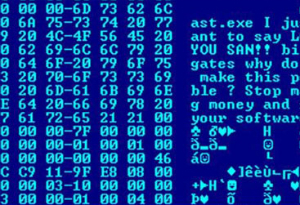Why aren’t Millennials interested in cyber careers?
- Emma Finamore
- Last updated 01 Nov 2015
Come on guys, get with the programme!

Millennials are the group that has never known life without the internet, social media, smartphones and laptops, but a report published last month revealed that their interest in cyber careers does not match the growing need in the IT sector.
The report, Securing Our Future: Closing the Cybersecurity Talent Gap, shows that there is a greater demand for cyber security experts than there are young people joining the sector: 79% of US businesses reported a cyber security incident in the last year, and job postings for cyber security jobs in 2014 was an increase of a huge 91% from 2010.
US companies posted 49,493 jobs requiring Certified Information Systems Security Professional (CISSP) certification in just last year alone, but there are only 65,362 CISSP holders in the whole country; the majority of whom are already employed.
But why?
Low awareness of the profession
The survey showed that Millennials would are far more likely to want to pursue a cyber security career if they are aware of what the job entails.
But not all are aware of the opportunities: only 21% of those surveyed had met a cyber professional before. Of those not in-the-know, 29% wanted the opportunity to meet a cyber security professional to discuss careers. Of those who say they have met a cyber security professional, 60 percent said they had a conversation with them about careers.
The state of the industry is even worse when it comes to attracting women. Mike Daly, Cyber chief technology officer (CTO) at Raytheon, told SCMagazine.com: “When asked whether they had been made aware of cyber opportunities [by educators and other adults], 47% of men said they had been made aware and only 33% of women said they had.
“Cyber more than any other industry is dependent on diversity to find solutions,” said Daly. “Without diversity you can’t possibly find solutions for all the different people and the ways they use and store data.”
Millennials also have preconceived notions of the downsides of cyber security careers: as 21% cited stress as something they associate with the job, and 18% cited boring job tasks. 15% said they think the field provides inadequate salaries.
Lack of cyber education
The majority of millennials (58%) said they were not taught in the classroom about ways to stays safe online or were unsure whether their lessons provided that knowledge.
Shockingly, 30% of respondents said no one at all had given them a talk about online safety.
31% said a parent or relative had given them a cyber safety talk, 23% said “other adult” and 17% said – surprisingly – “a friend”, which is concerning seeing as Millennials’ peers probably know about the same as they do about staying safe.
Millennials’ overconfidence in cyber safety
The majority of Millennials (65%) feel they already have the ability to stay safe online, despite the lack of education, awareness and engagement of cyber security as a career.
Shockingly, Millennials seem not to be aware of the threat to businesses and governments: despite publicised threats and hacks in the news, a whopping 67% of the group said they didn’t hear about a cyber attack in the last year, and 84% said they had not read any articles about the topic in the past month.
Also troublingly, of those young adults who had experienced credit card fraud, identity theft, a malware-infected device or other personal online violation within the last year, almost half (44%) said they did not change their behaviour at all as a response.
News
- The 4 coolest new Tech Levels
- International Women’s Day: STEM careers & apprenticeships
- It’s National Apprenticeship Week? No. Way.
- School Leaver Awards 2018: Spotlight on Moore Stephens
- Women in Engineering Day: five reasons my engineering apprenticeship was the right choice
- National Storytelling Week: careers with words
- The Intern: 5 real-life Hollywood interns & what you can learn from them
- Skills shortage vacancies: the UK’s top 5 industries
- How to Become a Professional Gamer
- The best UK Cities for Young People